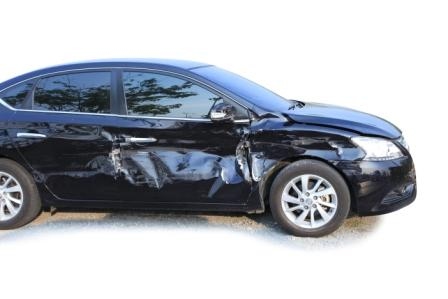When is a car totaled?
The point of determining when a car is a total loss is going to vary between insurance companies. Generally, you can expect if the damages to your vehicle add up to more than 70% of your cars value it’s likely your insurance company will consider it a total loss.
The reason for this is long experience has taught insurance companies when there is significant damage to a vehicle there is often unseen damage – additional damages that aren’t discovered until a body shop begins to dismantle and repair the vehicle. Rather than run a risk of starting repairs and winding up paying more than a car was worth in repair costs the insurance company will cap their potential expense by declaring the car a total loss and paying the value of the vehicle.
If you accept a settlement offer for your totaled car you should expect your insurance company will take possession of the vehicle. Insurance companies customarily have arrangements with salvage yards and are able to sell a totaled automobile to recoup a portion of their claim costs.
What is my totaled car worth?
While replacement coverage is an option some insurance companies offer for newer cars, in most instances you can expect your insurance would settle a total loss based on a fair market value for your vehicle. Fair market value is an approximation based on what it would cost to purchase a similar year, make, model, condition, and mileage vehicle.
The method by which fair market value of a totaled car is determined will vary between insurance companies. With the wealth of information readily available online many insurance companies utilize websites like AutoTrader to find current listings for comparable vehicles to determine value.
Throughout my career values for totaled vehicles have consistently proven to be a point of contention – arising from the reality that most people placing a premium on their own car. This is understandable – you know the history of your own car whereas, even if a loss settlement is enough to buy a comparable car, you can’t be completely sure of the maintenance history and reliability of a similar vehicle.
Realistically there isn’t a way to factor how diligently you may have worked to maintain your vehicle into a total loss valuation. That being said, if you believe your insurance company is low in their valuation the best counsel I can offer is to provide documentation to substantiate why the value should be higher. Do a little research of your own online finding any comparable vehicles listing at a higher price; provide records for any recent service that may be relevant – such as if you put new tires on your car within the past month.
Perhaps the best advice is to be courteous and articulate when conveying your reasons for suggesting a higher value for your totaled vehicle. While the old saying is the squeaky wheel gets the grease it’s been my experience nothing can more quickly harden an adjuster’s position than when a claimant being gruff and unpleasant. It’s perfectly reasonable to question a settlement, especially if you can provide sound reasoning for an adjuster to reconsider and justify a change in value, but you’re best served to do so in a respectful manner.
What if I owe more than my car is worth?
This can be a very valid concern these days: With car loan terms stretching as long as 7 years there is an increased likelihood a borrower could be upside down – with their loan balance exceeding the value of their car.
The way to deal with this potential concern is to address it in advance by purchasing loan or lease gap coverage. This is an optional insurance upgrade typically available when purchasing or leasing a new car that broadens coverage on the vehicle, in the event of a total loss, guaranteeing the insurance will pay any difference between the value of the vehicle and the balance of any loan or lease.
What if I want to keep my totaled car?
I always caution clients to give careful consideration to any decision to keep a totaled vehicle – focusing on considering the mechanical integrity of the car. If damages to your car were mostly cosmetic this may not be a concern, but if your vehicle was badly damaged you should be certain the car will be mechanically safe and reliable to continue to operate.
You should also be aware, if you keep a totaled car, your insurance company is likely to remove physical damage coverage (comprehensive and collision) from that vehicle. While this seems like an obvious course of action I’m routinely surprised how many people object when the insurance company removes full coverage from a totaled vehicle – although, it does raise an interesting, related question:
What if I repair my totaled car?
Over the years I’ve worked with several clients who chose to keep and repair a totaled vehicle – even when the insurance company thought the car wasn’t worth repairing.
Once a totaled car is repaired your insurance company may be willing to once again insure the car for physical damage. The insurance company will likely require documentation repairs have been completed – typically in the form of a receipt and/or photos of the repaired automobile.
Related article:
What happens if my classic car is totaled?

